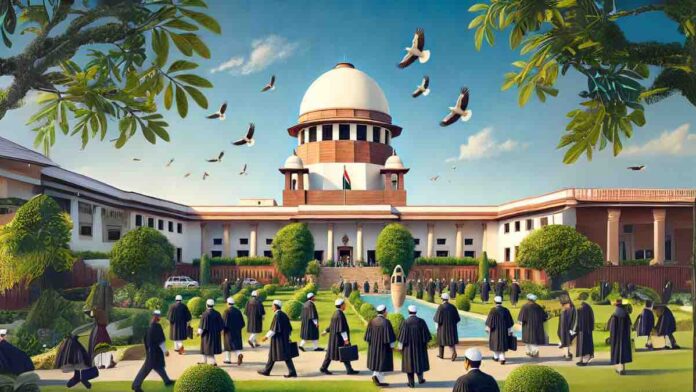A three-judge Bench of the Supreme Court comprising Chief Justice of India Surya Kant, Justice Ujjal Bhuyan, and Justice Nongmeikapam Kotiswar Singh has held that a Letter of Intent (LoI) is merely a “precursor to a contract” and a “promise in embryo” which does not create any binding or enforceable rights until the stipulations and
To Read More Please Subscribe to VIP Membership for Unlimited Access to All the Articles, Download Available Copies of Judgments/Order, Acess to Central/State Bare Acts, Advertisement Free Content, Access to More than 4000 Legal Drafts( Readymade Editable Formats of Suits, Petitions, Writs, Legal Notices, Divorce Petitions, 138 Notices, Bail Applications etc.) in Hindi and English.




